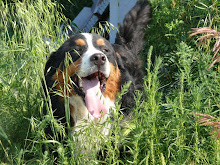
As usual peta is only interested in half the story. They don't mention that products containing gluten, a vegan product can have exactly the same effect.
"The jury is still out on whether or not diets free of gluten and casein can reduce autism, but the little evidence that there is suggests it's possible that it could help some children."
Autistic children often have gastrointestinal tract disturbances such as abdominal pains and diarrhea which make it hard for them to digest certain milk proteins properly.
Many people, including doctors, nutritionists and parents of autistic children believe that this can be somewhat relieved by eliminating certain foods from the diet.
A casein-free diet is an eating plan in which milk protein (casein) is eliminated by removing all dairy products from the diet. It is often, if not always, used in combination with a gluten-free diet, which calls for the elimination of wheat, barley, rye, oats, and any products made from these grains which would include food starches, semolina, couscous, malt, some vinegars, soy sauce, flavorings, artificial colors and hydrolyzed vegetable proteins.
There are different possibilities for ways in which this could affect children with autism. The most studied theory is that eating or drinking milk protein leads to high levels of protein by-products, called casomorphines, in some children with autism. These by-products may then affect behavior like a drug would. Specifically, in these children, casomorphines could reduce their desire for social interaction, block pain messages, and increase confusion. If milk protein is taken out of the diet, the idea is that this will reduce the level of casomorphines, and behavior will improve as a result.
The effectiveness of elimination diets in improving the behavior of children with autism has only recently been scientifically researched. This research has almost always examined diets that are both casein- and gluten-free. The tested diets were both casein- and gluten-free, so it is not clear whether it was the elimination of casein, gluten, or both that resulted in any improvements.
According to one theory, some people with autism cannot properly digest gluten and casein, which form peptides, or substances that act like opiates in their bodies. The peptides then alter the person's behavior, perceptions, and responses to his environment.
Medical tests can determine if your child has a sensitivity or an allergy to gluten, casein and other foods such as eggs, nuts and soybeans.
There is also a wide range of web sites and parent support groups exist that provide advice and support to parents trying to follow gluten-free and casein-free diets for their children with autism.
Do not, under any circumstances take nutritional advice from peta. They do not consult with doctors or researchers and much of their information is based on hearsay.
http://www.autismcanada.org/glutensugar.htm
http://www.autismweb.com/diet.htm
http://www.medicalnewstoday.com/articles/9875.php
http://www.informedhealthonline.org

No comments:
Post a Comment
Comments are welcome and encouraged.
We want to hear from you so feel free to add your two cents.